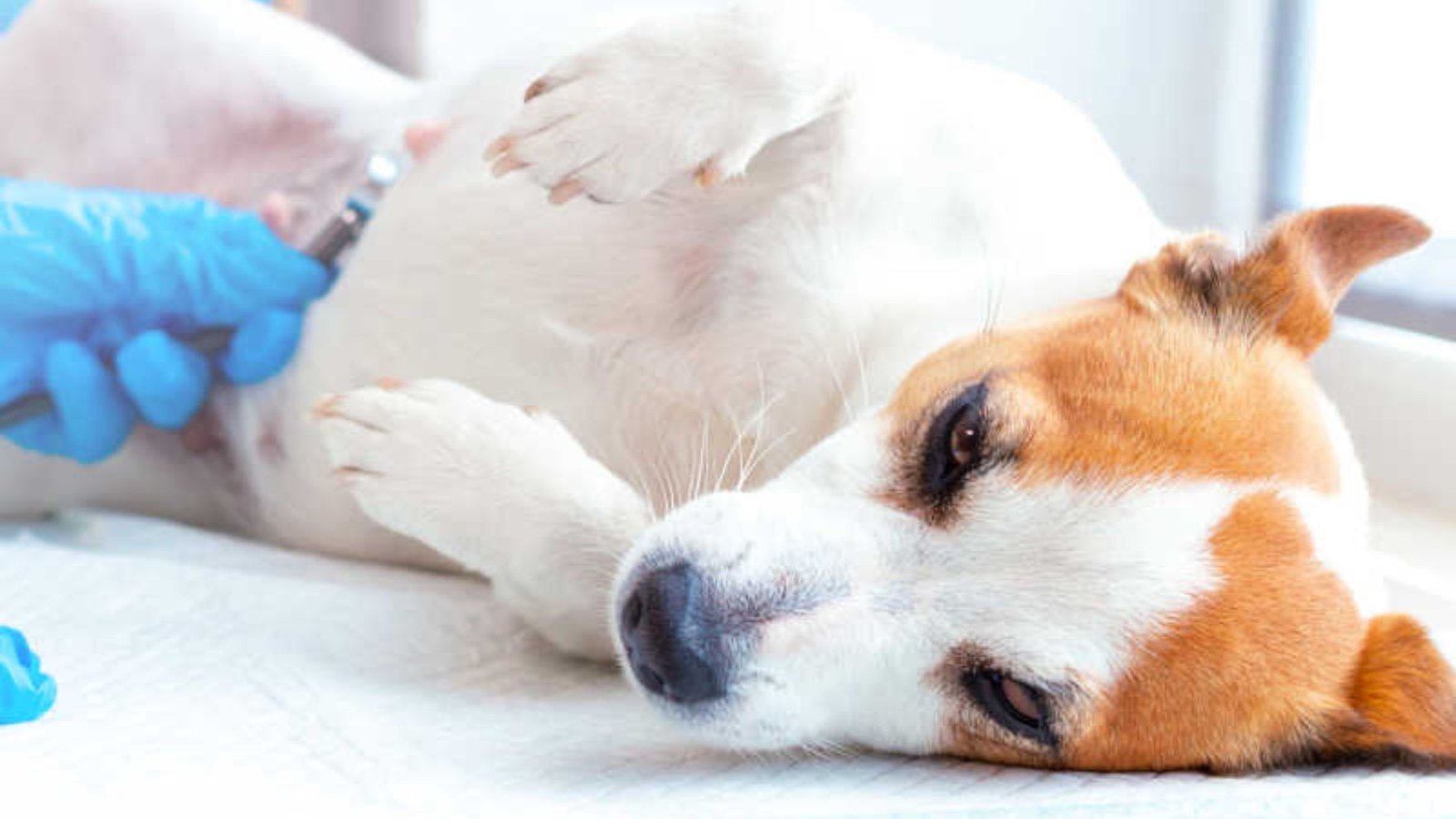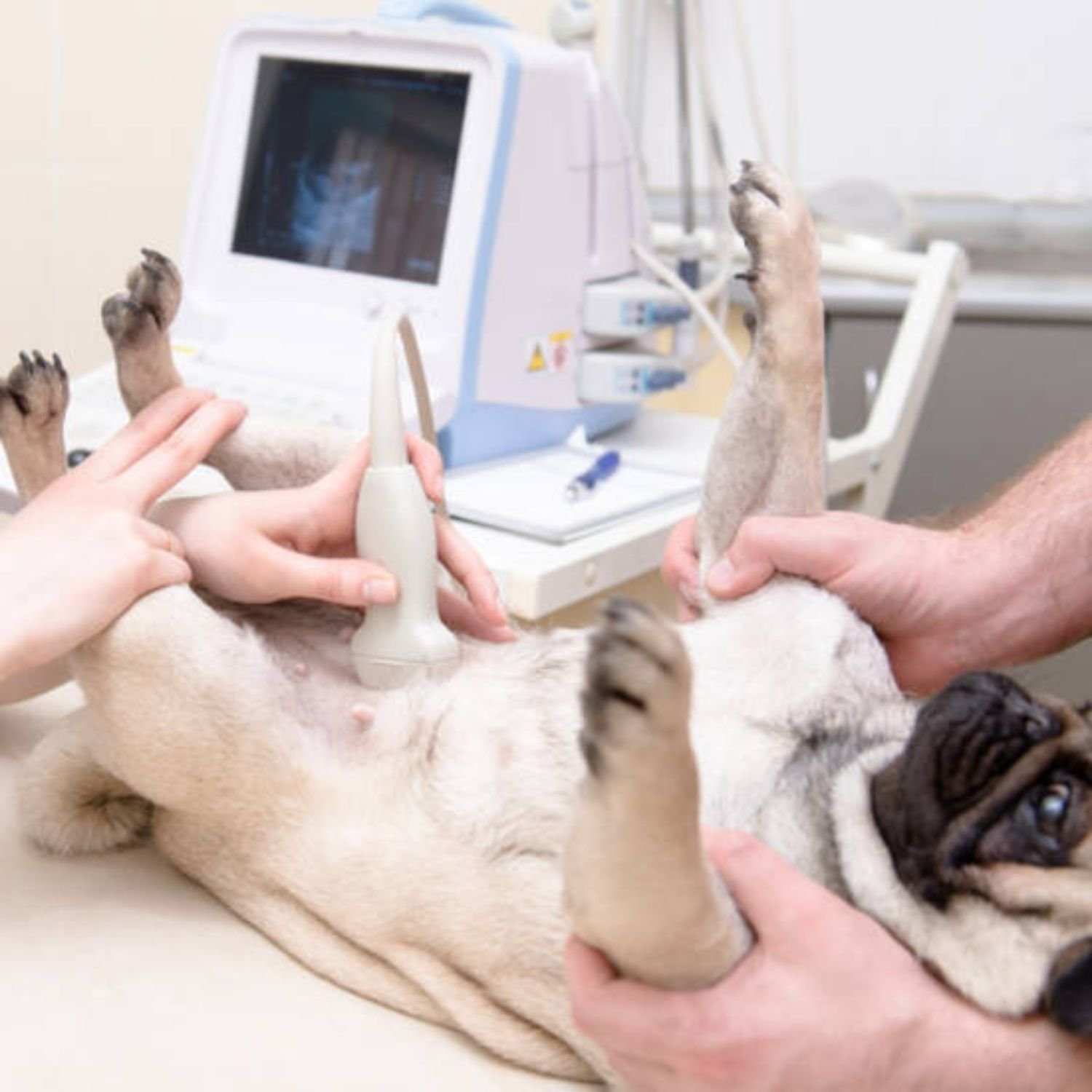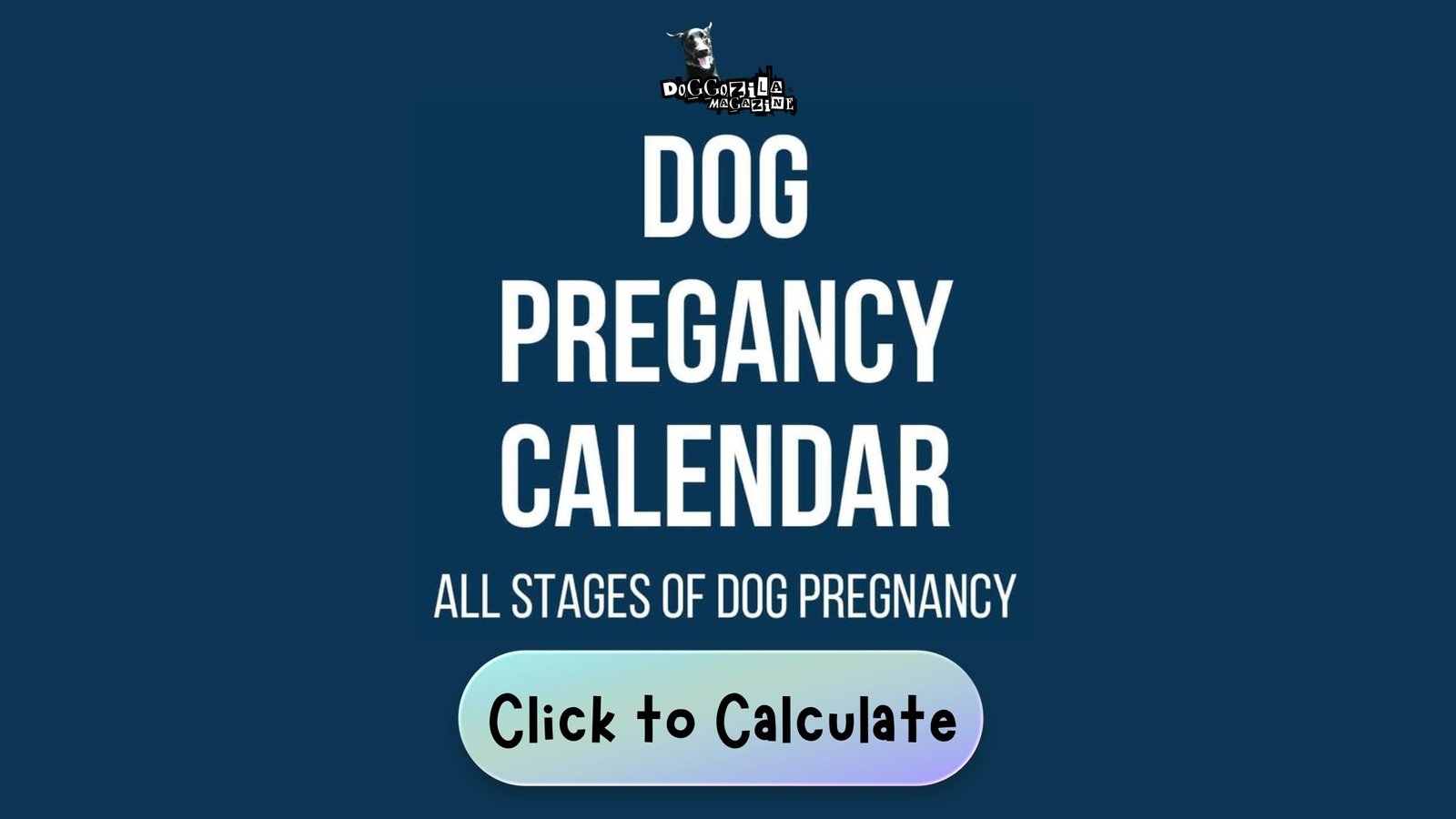Pregnancy in dogs, also known as the gestation period, is an exciting time for dog owners and breeders alike. Just like humans, dogs go through a specific period of pregnancy before giving birth to their puppies. Did you know how long are dogs pregnant?

In this article, we will explore the duration of a dog’s pregnancy,
factors that can affect the length of gestation, and how to calculate the expected due date.
HOW TO KNOW THE DURATION OF DOG PREGNANCY?
Pregnancy in dogs, also known as the gestation period, is an exciting time for dog owners and breeders alike. Just like humans, dogs go through a specific period of pregnancy before giving birth to their puppies. So, how long are dogs pregnant? The average gestation period for dogs is approximately 63 days, but it can range anywhere from 58 to 68 days. This is just an on the average, and many individual dogs may have longer or shorter pregnancies. During the first few weeks of pregnancy, it can be difficult to determine if a dog is pregnant just by looking at her.
What Signs To Look Out As The Dog Pregnancy Progresses?
These can include changes in appetite, weight gain, nipple enlargement, and behavioral changes. They can perform a physical examination and may recommend additional tests, such as ultrasound or blood-work, to confirm the pregnancy.
Once a dog is confirmed to be pregnant, it’s important to provide her with proper care and nutrition. Pregnant dogs have increased nutritional needs, so it may be necessary to switch to a high-quality dog food specifically formulated for pregnant or nursing dogs. Your veterinarian can provide guidance on the best diet for your dog during this time.
How to Prepare for Your pregnant dogs?
As the due date approaches, it’s a good idea to create a comfortable and safe whelping area for the mother dog. This should be a quiet and warm space where she can give birth and care for her puppies. It’s also important to have a plan in place for any potential complications during labor, such as contacting your veterinarian for assistance. During the last week or so of pregnancy, you may notice some nesting behaviors in your dog.
She may start to gather blankets or toys to create a cozy space for her puppies. This is a natural instinct and a sign that labor is approaching.When the time comes, the mother dog will go into labor and give birth to her puppies. The length of labor can vary, but it usually lasts between 6 to 12 hours.
During this time, it’s important to monitor the mother dog closely and provide any necessary support. After the puppies are born, it’s crucial to continue providing proper care for both the mother and the puppies. This includes regular veterinary check-ups, vaccinations, and a nutritious diet.
What Factors are Affecting the Length of Gestation in pregnant dogs?
While the average gestation period provides a general guideline, there are several factors that can influence the length of a dog’s pregnancy:
- Breed: Different dog breeds may have varying gestation periods. Larger dog breeds may have longer pregnancies, while smaller dog breeds tend to have shorter ones. It’s important to consult with a veterinarian or a reputable breeder to determine the expected gestation period for a specific breed.
- Age: The age of the dog can also affect the length of her pregnancy. Younger dogs may have shorter pregnancies, while older dogs may have slightly longer ones. It’s important to consider the age of the dog when estimating the due date and preparing for the arrival of the puppies.
- Health and Nutrition: A dog’s overall health and nutrition play a significant role in the length of her pregnancy. A well-nourished and healthy dog is more likely to have a smoother pregnancy and deliver healthy puppies on time. It’s essential to provide the mother with a balanced diet and regular veterinary care throughout her pregnancy.

HOW TO CALCULATE THE PREGNANT DOGS DUE DATE?
With a planned breeding, it is crucial to record the exact date of mating to calculate the expected due date accurately. You can find Dog Pregnancy Calculator that you can use at the end of this article.
Here’s how you can estimate the due date:
How to Count the days of Pregnant Dogs from the First Day of Mating?
The gestation period is typically counted from the first day of mating. Once you have the date of mating, you can add 63 days to determine the estimated due date. However, remember that this is just an approximation, and the actual delivery may occur a few days before or after the expected due date.
Why Monitoring Physical Changes is Important?
Another way to estimate the due date is by monitoring the physical changes in the mother dog’s body. As the pregnancy progresses, the dog’s abdomen will gradually enlarge, and her nipples may become more prominent. Around 3-4 weeks into the pregnancy, a veterinarian can perform an ultrasound to confirm the presence of puppies and provide a more accurate estimate of the due date.
Why Consulting with a Veterinarian for Your Pregnant Dogs is Essential?
If you are unsure about calculating the due date or have any concerns about your dog’s pregnancy, it is always best to consult with a veterinarian. They can perform a thorough examination, conduct diagnostic tests, and provide expert guidance throughout the pregnancy.
Understanding the duration of a dog’s pregnancy is essential for dog owners and breeders. By knowing the average gestation period and considering factors that can affect the length of pregnancy, you can better prepare for the arrival of the puppies and ensure the well-being of the mother.
Remember to consult with a veterinarian for accurate due date estimation and to address any concerns or questions you may have during this exciting time. When you suspect that your dog may be pregnant, it’s natural to want to know for sure as soon as possible.
Fortunately, there are reliable methods available to diagnose dog pregnancy. Further in this article, we will explore two common methods used by veterinarians to confirm a dog’s pregnancy: the dog pregnancy test and ultrasound.
Check the Dog Pregnancy Calculator at the end of the article!

WHY TAKE THE TEST TO DETERMENT IF YOUR DOGS ARE PREGNANT?
The dog pregnancy test is a simple and effective way to determine if your dog is pregnant. This test measures the levels of a hormone called relaxin, which is produced by the developing placenta. The levels of relaxin start to rise around day 21-25 of the dog’s pregnancy. To perform the dog pregnancy test, your veterinarian will collect a blood sample from your dog and send it to a laboratory for analysis.
The laboratory will then measure the levels of relaxin in the blood and provide a definitive answer regarding your dog’s pregnancy status. It’s important to note that the dog pregnancy test is most accurate when performed during the appropriate time frame, which is between days 21 and 25 of the dog’s term. Testing too early or too late may result in false negative or false positive results.
Why You Should Make The Ultrasound for Dog Pregnancy Diagnosis?
Another reliable method for diagnosing dog pregnancy is through the use of ultrasound. An ultrasound machine uses sound waves to create images of the dog’s reproductive organs, allowing the veterinarian to visualize the developing puppies in the uterus.
The ideal time to perform an ultrasound for dog pregnancy diagnosis is between day 20 and day 22 of the dog’s pregnancy. At this stage, the puppies are large enough to be visible on the ultrasound images, but not too large to cause discomfort to the mother.
During the ultrasound examination, the veterinarian will apply a gel to the dog’s belly and use a handheld device called a transducer to capture the images. The transducer emits sound waves that bounce off the internal structures and create a visual representation on a screen.
By examining the ultrasound images, the veterinarian can count the number of puppies, assess their size and development, and confirm the pregnancy. Ultrasound is a safe and non-invasive procedure that does not harm the mother or the developing puppies.
What are the Usual Signs of Pregnant Dogs?
While the dog pregnancy test and ultrasound are the most reliable methods for confirming a dog’s pregnancy, there are also some signs and symptoms that can indicate a possible pregnancy. However, it’s important to note that these signs can vary from dog to dog and may not always be accurate.
Some common signs of dog pregnancy include:
- Changes in appetite: A pregnant dog may experience an increase or decrease in appetite.
- Weight gain: As the pregnancy progresses, the dog’s abdomen will start to expand.
- Nipple enlargement and darkening: The dog’s nipples may become larger and change color.
- Behavioral changes: Some pregnant dogs may become more affectionate or display nesting behaviors.
- Increase in sleep: Pregnant dogs may sleep more than usual.
While these signs can provide some indication of pregnancy, they are not definitive proof. For an accurate diagnosis it’s always best to consult with your veterinarian.
Why is Important of Knowing if Your Dogs are Pregnant?
Knowing whether your dog is pregnant is important for her health and the health of her puppies. Your veterinarian can confirm a pregnancy using either a dog pregnancy test or ultrasound. The dog pregnancy test measures the levels of relaxin hormone in the dog’s blood, while ultrasound allows visualization of the developing puppies in the uterus.
It’s important to remember that both methods have specific time frames in which they are most accurate. The dog pregnancy test should be performed between days 21 and 25 of the dog’s term, while ultrasound is best done between day 20 and day 22.
If you suspect that your dog may be pregnant, look for signs such as changes in appetite, weight gain, nipple enlargement, behavioral changes, and increased sleep. However, these signs are not definitive proof of pregnancy, and a veterinarian’s diagnosis is always recommended for accurate results.
By using these reliable methods of dog pregnancy diagnosis, you can ensure that your dog receives the appropriate care and support throughout her pregnancy journey.

WHAT TO DO WHEN YOUR DOGS ARE PREGNANT?
Welcoming a litter of puppies into the world can be an exciting and rewarding experience. If your dog is pregnant for the first time, it’s important to provide her with the care and attention she needs to ensure a healthy pregnancy and successful delivery. Let’s discuss some essential steps to take when your dog is pregnant for the first time.
Consult with Your Veterinarian
The first and most crucial step is to schedule an appointment with your veterinarian. A professional will be able to confirm the pregnancy and provide guidance on how to care for your dog throughout the process. They may also recommend specific dietary changes or supplements to support your dog’s health and the development of the puppies.
Why You Should Adjust the Diet for Pregnant Dogs?
A pregnant dog has different nutritional needs than a non-pregnant dog. It’s important to switch her to a high-quality, balanced diet formulated for pregnant or nursing dogs. This diet that you will plan for your dog should be rich in essential nutrients, such as vitamins, calcium and protein. Your veterinarian can recommend a suitable diet plan or provide specific dietary guidelines to follow.
How to Provide Adequate Exercise for Pregnant Dogs?
Regular exercise is important for a pregnant dog, but it’s essential to strike a balance. Short walks and light playtime are great exercises for pregnant dogs. However, it’s crucial not to over-stimulate the pregnant dog or let her become lethargic. Monitor her energy levels and adjust the exercise routine accordingly. If you have any concerns, consult with your veterinarian for personalized advice.
Create a Comfortable and Safe Environment for the Pregnant Dogs
During the last three weeks of pregnancy, it’s important to separate the pregnant dog from other dogs and animals. This will help reduce stress and minimize the risk of any potential conflicts. Create a comfortable and quiet space for your dog to rest and relax. Provide a clean and cozy bed, ensuring it is easily accessible for her as her belly grows. Consider using a whelping box, which is a safe and enclosed area for the delivery of the puppies.
Why You Should Monitor Dog’s Weight Gain?
Keep an eye on your dog’s weight throughout the pregnancy. While weight gain is expected, excessive weight gain can lead to complications during delivery. Consult with your veterinarian to determine the appropriate weight range for your dog’s breed and size. Regularly weigh your dog and adjust the diet as necessary to maintain a healthy weight.

BE PREPARED FOR THE DOG LABOR AND DELIVERY
Educate yourself about the signs of labor and what to expect during the delivery process. Familiarize yourself with the normal duration of labor, the stages of labor, and potential complications. Have essential supplies ready, such as clean towels, sterile gloves, and a heating pad. Keep your veterinarian’s contact information easily accessible in case of any emergencies or concerns.
Provide Emotional Dog Support
Pregnancy can be a physically and emotionally demanding time for your dog. Provide her with plenty of attention, love, and reassurance. Keep her stress levels low by maintaining a calm and peaceful environment. Avoid introducing any major changes or disruptions during this time.
Why Postnatal Dog Care is Important?
Once the puppies are born, your dog will require additional care and attention. Puppies should be nursing properly and gaining normal weight. Always monitor the dog’s health and if you have any concerns consult with your veterinarian. Your dog will also need to continue with her specialized diet to support milk production and recovery.
The Final Takeaway On How Long Are Dogs Pregnant
When your dog is pregnant for the first time, it’s important to provide her with the necessary care and support. Consult with your veterinarian, adjust her diet, provide adequate exercise, create a comfortable environment, monitor weight gain, be prepared for labor and delivery, offer emotional support, and continue with postnatal care.
By following these steps, you can help ensure a healthy pregnancy and successful delivery for your dog and her puppies. So, the average gestation period for dogs is around 63 days, but it can vary. If you suspect that your dog may be pregnant, it’s important to consult with a veterinarian for confirmation and guidance. Providing proper care and nutrition during pregnancy and after birth is essential for the health and well-being of both the mother and her puppies.

If you are interested how to calculate your Dog Pregnancy, we give you the Dog Pregnancy Calculator!
Calculate the number of days left until the delivery date, as well as the exact day of the week the labor is going to happen on!









